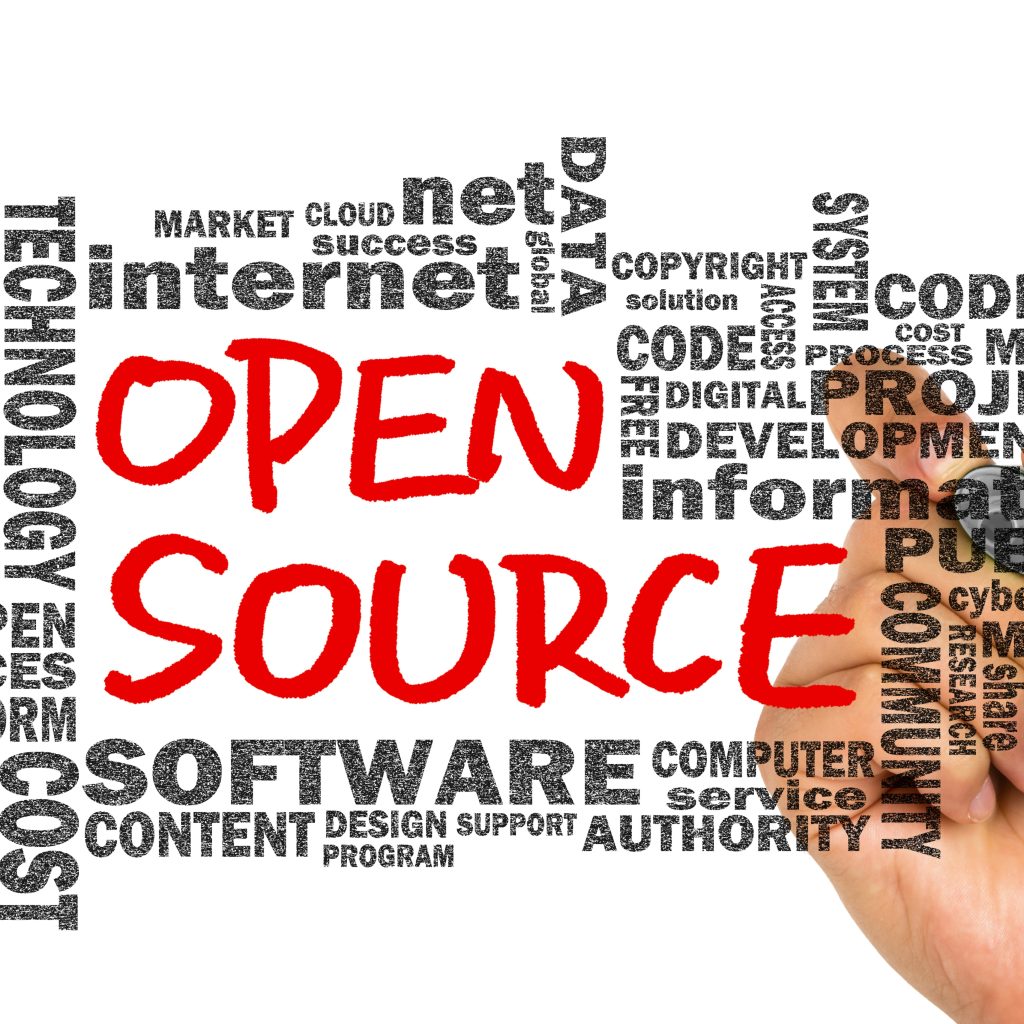When you think of contributing to open source projects, do you immediately think of coding? While coding is certainly a valuable skill, it’s not the only way to get involved in the open source community.
Open source projects rely on the contributions of many individuals, each with their own unique skills and talents. From documentation and design to community management and marketing, there are countless ways to make a meaningful impact without writing a single line of code.
If you’re passionate about open source but don’t consider yourself a programmer, fear not! There are numerous non-programming ways to contribute to open source and play a vital role in the development and success of these projects. In this article, we will explore some of these alternative avenues and how you can get involved.
Sources of Inspiration and Ideas
Creativity is sparked by inspiration and ideas, and it can come from a wide range of sources. From nature and the environment to art and literature, the world around us is full of potential inspiration. Similarly, interacting with different cultures, exploring new technologies, and engaging in diverse conversations can lead to fresh ideas. Moreover, personal experiences, emotions, and memories can also serve as powerful sources of inspiration.
Whether it’s a simple moment of beauty in nature or a deep, thought-provoking conversation, inspiration can strike from unexpected places. Understanding and recognizing these sources of inspiration and ideas can help individuals tap into their creativity and unlock their endless potential for innovation and new concepts.

Popular Open Source Projects
To find the most popular open source projects on GitHub, you can use the “Trending” link or utilize the advanced search criteria.
If you want to use the “Trending” link, simply go to the GitHub homepage and click on the “Trending” link at the top of the page. This will show you the most popular open source projects on GitHub based on factors such as stars, forks, and issues.
Alternatively, you can use the advanced search criteria to find popular open source projects. Go to the GitHub search bar and type in keywords such as “open source” and “projects” to filter your search. You can then use the advanced search options to filter by stars, forks, and other factors to find the most popular open source projects.
Mailing Lists and Issue Trackers
One of the key ways to contribute to open source projects is through mailing lists and issue trackers. These are online platforms where users can ask questions, report bugs, discuss new features, and get help with problems. They provide a great way for developers to stay connected with the larger community of contributors.
Mailing lists allow users to have discussions about a project and make suggestions for how it can be improved. Issue trackers, on the other hand, allow users to report and track bugs and feature requests.
It’s important to remember that these platforms are public forums and anything posted can be seen by anyone in the community. As a result, it is important to maintain a professional attitude when using mailing lists or issue trackers.
Common Misconceptions About Open Source Contributors
There are several common misconceptions about open source contributors that often lead to misunderstandings and missed opportunities for collaboration. In this article, we will explore and debunk some of these misconceptions, shedding light on the important and valuable contributions that open source contributors make to the development of software and technology. Understanding the realities of open source contribution can help foster a more inclusive and productive environment for collaboration in the open source community.

Who Makes Up an Open Source Community?
An open source community comprises a diverse group of individuals, including developers, designers, marketers, and other contributors. Developers are responsible for creating and maintaining the code, while designers focus on the user interface and experience. Marketers play a crucial role in promoting the project and attracting users and contributors.
Motivations for contributing to open source projects vary widely and may include personal fulfillment, skill development, and networking opportunities. Developers may contribute to showcase their skills, while designers may seek to improve their portfolios. Marketers may be interested in expanding their network or gaining industry recognition.
Key characteristics of open source communities include their collaborative and transparent nature, emphasis on licensing, recognition based on merit, and establishment of community norms and governance. The community is built on collaboration and transparency, with decisions made openly and collectively. Licensing is essential to protect the project’s openness and ensure fair use. Recognition is based on meritocracy, and community norms and governance are established to maintain order and growth.
Expectations for Non-Coding Skillsets
Non-coding skillsets play a crucial role in open source contributions. While coding skills are essential, non-code contributions such as documentation, design, testing, project management, outreach, and community building are just as valuable. Open source projects rely on individuals with these diverse skillsets to thrive.
To find and appreciate non-code contributors, open source communities can actively recognize and encourage their contributions. This can include creating specific roles or teams for non-coding tasks, acknowledging their work in project updates, and providing mentorship and resources to help them grow in their respective areas.
Several programs and initiatives support non-code contributions in open source projects. For instance, initiatives like Google Season of Docs provide opportunities for technical writers to contribute to open source projects. Additionally, organizations like OpenHatch and Open Source Design welcome non-code contributors and offer guidance and resources to support their participation in open source communities. Recognizing and leveraging non-code contributions is vital for the success and sustainability of open source projects.
Is Proprietary Software Better Than Open Source?
Open-source software differs from proprietary software in several key aspects. Functionality is often similar between the two, but open-source software may offer more flexibility for customization and integration with other systems. In terms of collaboration, open-source software allows for a more inclusive and cooperative development process, with a wide range of contributors from the community. Proprietary software, on the other hand, is developed and controlled by a single entity, limiting collaboration to a specific team or company. Licensing also sets the two types of software apart, as open-source software typically allows for free distribution and modification, while proprietary software requires users to adhere to specific terms and conditions.
Advantages of proprietary software include dedicated support, specialized features, and a clear roadmap for updates and improvements. Open-source software, on the other hand, benefits from a larger community of developers, transparency, and the potential for rapid innovation. Ultimately, the impact of each type of software on innovation and community support varies. Open-source software can foster collaboration and continuous improvement, while proprietary software may be more focused on satisfying the specific needs of a target market.
Experienced Contributor Tips for Getting Started
Are you new to contributing and want to make an impact? The following tips and strategies will help you navigate the world of contributing and set you up for success. These tips, gathered from experienced contributors, will give you the guidance needed to excel in your new role. Whether you are looking to develop new skills or make a meaningful contribution, these tips will help you get started on the right foot. Learn from those who have been in your shoes and take advantage of their experiences to accelerate your learning curve and make a positive impact from day one.

Identifying a Project to Contribute To
There are several top resources for finding open source projects to contribute to. GitHub Explore is a great place to start, as it provides a curated list of open source projects for different languages and topics. Open Source Friday encourages developers to contribute to open source projects every Friday, making it easier to find projects in need of help. First Timers Only also lists beginner-friendly open source projects to get new contributors involved.
After identifying a project of interest, it’s important to explore the /contribute page on the project’s GitHub repository. This page often contains information on how to get started, as well as a list of beginner-friendly issues to work on. By starting with these issues, newcomers can become familiar with the codebase and the project’s community.
Furthermore, tools like CodeTriage, 24 Pull Requests, and Up For Grabs can be used to discover and contribute to new projects. These platforms offer a variety of open source projects with different skill levels and types of contributions needed, making it easier for developers to find the right project to get involved with. By utilizing these resources, developers can easily find and contribute to open source projects in a meaningful way.
Making Your Feature Request Known
Making your feature request known is an important part of contributing to open source projects. In many cases, developers may not know what features users want in a project or how they should prioritize their work. It’s also possible that developers may be working on something without realizing it is a feature you wanted, so making your feature request known can save them time and effort.
The best way to make a feature request is to open an issue on the project’s GitHub repository. This way, other contributors can join the conversation and offer their opinions or potential solutions. Additionally, it will be easier for developers to monitor and track any necessary changes.
Becoming an Advocate for the Project
As an advocate for an open-source project, there are numerous ways to promote and contribute to the project’s success. You can promote the project through social media, blogs, and public speaking engagements. Working on developer experience is another crucial avenue, where you can focus on creating documentation, tutorials, and improving the overall developer journey. Getting involved in community building by organizing meetups, workshops, and engaging with the community members can also be incredibly impactful.
Developer advocacy is crucial for the success of open-source projects as it helps in building a strong and engaged community. It is also a stepping stone in one’s career as it not only allows you to contribute to meaningful projects but also enhances your visibility in the tech community. By demonstrating your expertise and passion for the project, you can advance your career and open up new opportunities for yourself.
Taking the First Steps on Your Source Journey
Contributing to open-source projects goes beyond just writing code. You can contribute by helping with documentation, design, testing, bug triage, community management, and more. One way to find suitable issues to work on is by browsing through the project’s issue tracker and filtering by labels such as “beginner-friendly” or “good first issue.” Once you’ve found an issue to work on, reach out to the project maintainers to confirm the issue is still relevant and discuss your proposed solution. It’s important to ensure the correctness of your solution by testing it thoroughly and providing test cases to validate your code. Additionally, adding documentation for your contributions can help others understand and maintain your code in the future.
If you encounter any issues during the contribution process, such as unclear requirements or disagreements with maintainers, it’s important to communicate openly and seek guidance from the project’s community. By understanding the different ways to contribute and addressing common concerns, you can make a meaningful impact on open-source projects.

Conclusion
In conclusion, open source projects can benefit from non-programming contributions in many ways. Non-programmers can help with bug reports, documentation, user experience design, usability testing, and marketing. They can also provide valuable feedback to developers and contribute to the overall success of a project. With so many different ways to get involved, there’s something for everyone in the open source community. So don’t be afraid to take the plunge and start contributing to your favorite open source project today!
